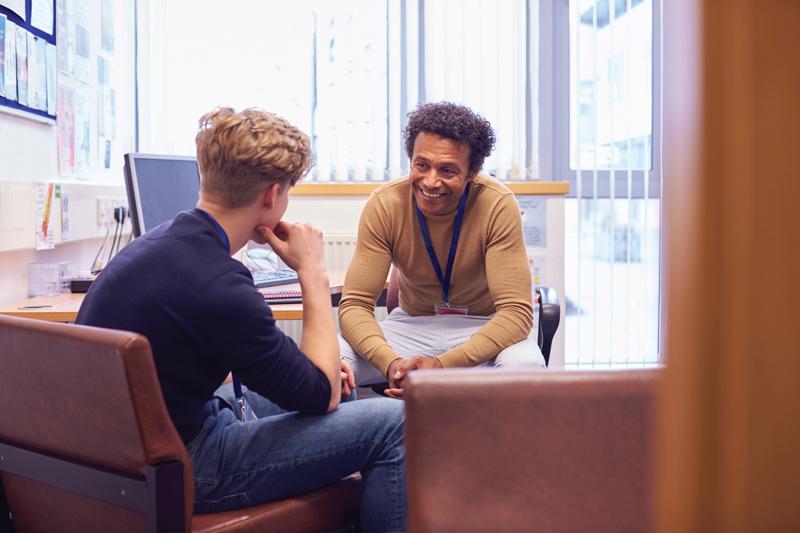Watching a sporting event on television can be enjoyable, but actually seeing it live, surrounded by cheering fans, provides a much more encompassing experience. While the television provides the viewer a visual play-by-play of what each team or athlete is doing, actually sitting in the stands gives the fan the real experience that images can't replicate. On many levels, the same can be said for learning.
A student can read about the Italian Renaissance or watch a video about the ocean, but it does not have the same impact as seeing the sculptures and paintings in Italy or enjoying the marvels at an aquarium. This can hold especially true when it comes to learning and experiencing science.
Most schools don't have the equipment or means available to show students what can be accomplished using science. And, in recent years, interest has waned in the topic as more students decide to pursue careers in other fields. Therefore, field trips might help spark an interest in science and possibly inspire students to pursue a deeper knowledge of the subject.
"I think that before students start laboratory-based learning in science, they are greatly excited by it. However, this excitement all too often pales. Students complain that the classroom science lessons lack 'relevance'," says Michael Reiss, a science education professor at the Institute of Education at the University of London. "I feel this criticism should be taken seriously. Out-of-school activities can be very motivating for students."
In 2004, Reiss and Martin Braund, an honorary fellow at the University of York and an adjunct professor in Cape Town, South Africa, published a book about the importance of out-of-school learning called Learning Outside the Classroom. Research from the book was later published in the International Journal of Science in 2006, which highlights several arguments on why science classes should go on meaningful field trips.
"One of the things we're trying to do is to promote field work as a way of getting [students] interested," says Braund, who notes that students are generally more interested in animal life than plant life. He suggests taking students to a botanical garden where they can be exposed to unique plant life and engage with the various scientists who work in this field. "It's not just a question of knowing what it is they are interested in… as science teachers, we also want them to know all the other things. It's promoting an interest in these things and using the outdoor environment. That is important to us."
The research Braund and Reiss conducted concludes that it is highly important to take students on field trips and promote informal learning, out-of-classroom work, and learning at home, in order for students to fully grasp what is happening in modern science. The pair looked at research from around the world to draw these conclusions. They recommend taking students to botanical gardens, science museums, zoos, and places where they can get hands-on experience and see how science interacts with many other fields that students might have an interest in.
"Field trips are remembered by students for a very long time," said Reiss. "They can provide instances of learning and be motivating in ways that school-based learning rarely can."
"Science education really seems to be rooted in the 19th century version of science, which is more concerned with lab work and work in the classroom," Braund says. "We wanted to promote field work as an example… that there are more opportunities for mathematics, science, and technology to come together."
In the United Kingdom, field trips and out-of-the-classroom work has been embraced and the Manifesto for Learning Outside Classroom partnership is widely supported. The partnership and its website offer ideas, resources, and research to educators to help make these trips safe and educational for students. If the trips are organized properly, then the partnership says students can "improve academic achievement, develop skills and independence in a widening range of environments, and nurture creativity," among other benefits. This partnership is just one of many organizations, educators, and government officials that push for field trips and other similar activities.
"I am glad to say that in the U.K. the last four years have seen a real effort by the national government to see more learning outside the classroom," said Reiss. "It is too early to be sure how sustainable this is but such an attitude is to be welcomed."
"There's been a real push to try and increase the amount of field work," Braund says of recent progress. "Not just in science subjects, but outdoor learning related to history, geography, mathematics, English, all subjects in the curriculum."
While there is substantial support for outside learning experiences, Braund and Reiss are still waiting to see the results. They feel that despite the push, some schools are not taking advantage of field work. Braund said the manifesto was created to encourage schools to go out more, but the economy, safety issues, and classroom constraints have hampered this.
"When you take a class out on a biology field trip, that class is probably not just missing the biology time, it's missing geography, math, or something else," offered Braund as an example. "Those other teachers then begin to say, 'Hey, wait a minute. It's all very well you're taking your pupils out to these situations, but they're actually missing essential learning time in my subjects and that's going to affect my exam results, on which I am judged'."
"For one thing, there is increasing pressure on schools to maximize student attainment in examinations. Yet such examinations often do not reward learning in out-of-school settings," added Reiss. "A second reason is that there is a perception—and often it is a perception rather than a reality—that today's stricter health and safety considerations mean that it's all too bureaucratic taking students out of the classroom."
Many educators instead take their students on "virtual" field trips, which may include using interactive technology, watching videos, or using computer programs as a means to take students out of the classroom. These have their benefits, but Reiss and Braund agree that they cannot take the place of the real thing.
"Virtual field trips can be a great preparation for and follow up to a field trip, for example for learning about the organisms that might be seen, were seen (or were not!), but they can't replace a real field trip," says Reiss.
"I always think [virtual field trips] are the second best," says Braund. He adds that sometimes the only way schools have access is through a virtual trip, which can prove very educational for students. "It's better to do the real thing, but we realize some schools can't'. … I just think there are lots of things that happen on field work, almost incidentally, that you can never replicate on a virtual trip, website, DVD, whatever it might be."








